I always truly enjoy being on an island. Nothing really beats a lazy morning stroll down the shoreline, looking for a cozy breakfast place.
All the small rituals, like indulging a hot morning coffee in the fragrant sea air. Waiting for some food, fully aware that it's going be unhealthy, but most likely delicious. No plans for the day. At least none that couldn't be changed on the smallest whim.
It was during one of those aimless walks on Santorini that I noticed a book displayed prominently in one of the tacky tourist book shops:
Atlantis Never Lost: The story of Santorni.
After flipping the cover, I had a look at the back: "A Historical Science Fiction Novel. What could cosmopolitan Santorini and the lost Atlantis possibly have in common?"

The iconic Village of Oia as night falls.
Well, what indeed? For some reason I was intrigued. It made me think of Plato (yes, the ancient Greek philosopher), and at first I wasn't sure why. Also this was quite unusual, as for me most knowledge gathered during high school unfortunately tends to disappear, dissolve or trickle away. Or perhaps move to an area of my brain that isn't accessible to me anymore, like a permanent vacation or maybe retirement. Instead there is just an empty record, just enough information to realize that there is information missing.




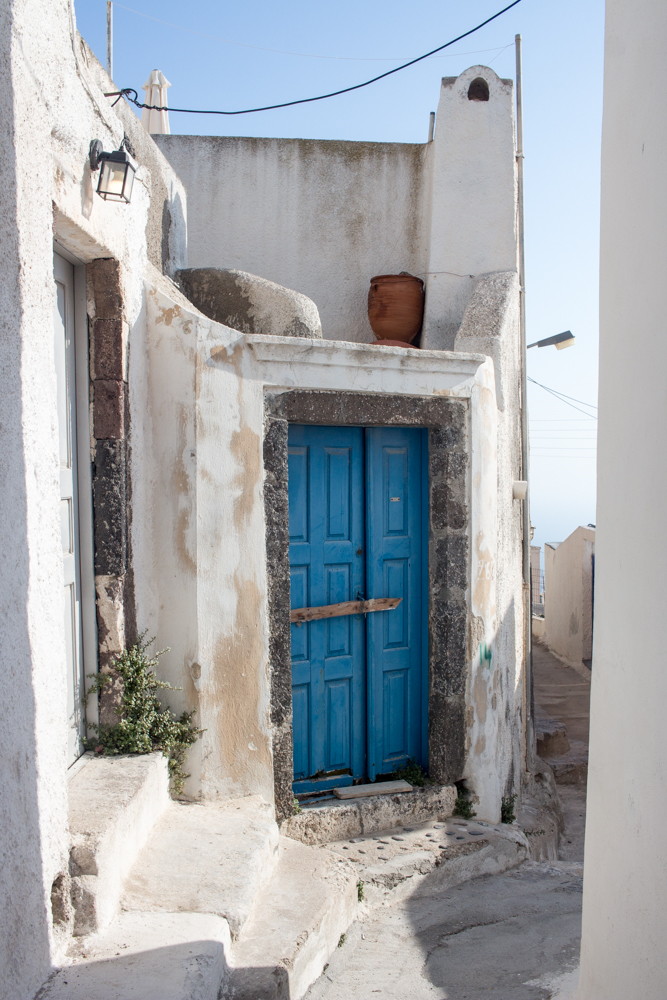

But in this case, surprisingly, there was still something left. I was pretty sure that Plato in fact did write about Atlantis, not from his own experience but from stories that were passed down to him. I also recalled that when it came to the location, he possibly made some mistakes by the factor of 10, which opened up a lot of controversy about where Atlantis was located and when it supposedly sunk to the bottom of the sea.
It also came to me why I memorized all that information. It was not from paying the attention in school, but rather, and I know this sounds weird, thanks to Indiana Jones.
As every nerdy kid that grew up in the 90s will probably know, there was a semi official 4th part to the Indiana Jones trilogy called "Indiana Jones and the Fate of Atlantis" in form of a computer game. In the game you had to track down Atlantis, by reading old books and talking to crazy characters while, of course, escaping Nazis.
My kid brain soaked all that information up better and more efficiently than any teacher could ever dream of. However, this was a bit problematic - was that information "accurate" or was it just another one of George Lucas's concoctions?






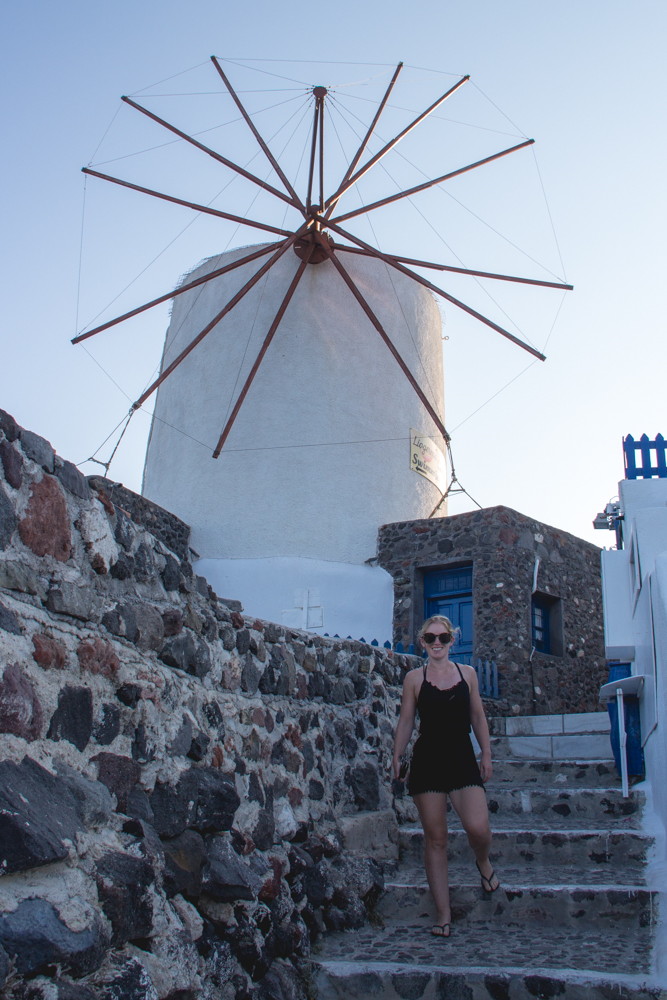

A Volcanic Eruption
That evening, back on the deck of our beautiful Greek village house on the top of the hill, I decided to do some research. It turns out that most of that information was in fact rather accurate, with some minor exaggerations and embellishments here and there. In Platos dialogues, the story of Atlantis is a highly moral one, a bit similar to the biblical tales of Sodom and Gomora.
The Atlantians were an advanced civilization, high in virtue and divine in origin. As their human nature started to get the upper hand, there came the inevitable fall from grace, and Atlantis was destroyed through Gods' anger in a single day and night by earthquakes and other cataclysms, until it sank to the bottom of the sea.
This incidentally fits pretty well with a major event in Santorini's ancient history - The Minoan eruption. This was a catastrophic volcanic eruption that took place somewhere between 1642 and 1540 BCE. When you look at a map of Santorini today, you will realize that the outer islands - Thera, Aspronisi and Therasia - are actually the outer ring of the caldera of that eruption.
Also, in Plato's descriptions, Atlantis has a circular shape, with concentric structures, which also fits perfectly with Santorini, before and after the Minoan eruption. Things were definitely starting to get interesting.
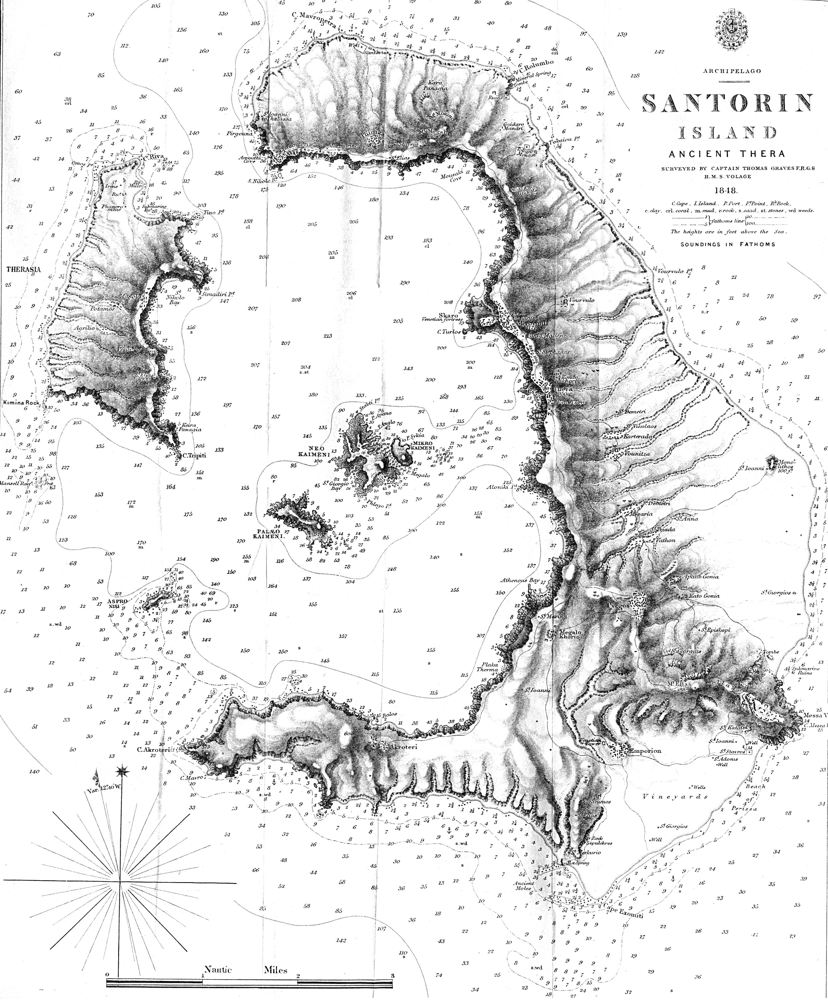 An old map of Santorini visualizing the caldera and the once circular shape
An old map of Santorini visualizing the caldera and the once circular shape  An old map of Atlantis showing it's circular shape
An old map of Atlantis showing it's circular shape The Game Of Zeros
The date for the destruction of Atlantis was given as 9000 years before Plato's time, but according to Galanopoulos and Bacon (1969), this should be read as 900 years due to an erroneous translation by Solon from the old Egyptian number system. That would mean that the event took place somewhere around 1500 BC, which again fits very well with the Minoan eruption.
The faulty numeral translation also plays in favor of Santorini regarding the location of Atlantis, which would change from being 2500 miles from Egypt to 250 miles, putting it somewhere in the Mediterranean sea.
Where Was Hercules?
However there are still some issues regarding this theory, especially in terms of the location and size of the mythical island. Plato writes that Atlantis was situated in the ocean beyond the "Pillars of Hercules", which at Plato's time was most likely referring to the Straights of Gibraltar. This would put Atlantis somewhere in the Atlantic ocean. To make things worse, Plato also states that in terms of size Atlantis was as big as Libya and Asia combined.
But here again there might be some possible explanations. The original text was quite a bit older and the Pillars of Hercules might not have been referring to the Straights of Gibraltar but quite possibly to a place within the Aegean Sea. Another possibility might be that they have been referring to the Minoan eruption itself, which undoubtedly was visible in the whole Eastern part of the Mediterranean. It must have been a very imposing sight, virtually reaching the sky.
When it comes to size, according to J.V. Luce (1969), it is possible that Plato, or someone else along the chain of the oral narrative, confused the two very similar Greek words for "bigger than" ("meson") and "between" ("mezon"). In this case Atlantis would not have been "bigger than" Libya and Asia, but "between" Lybia and Asia, which again works perfectly in Santorini's favor. But all of this are just speculations of course.
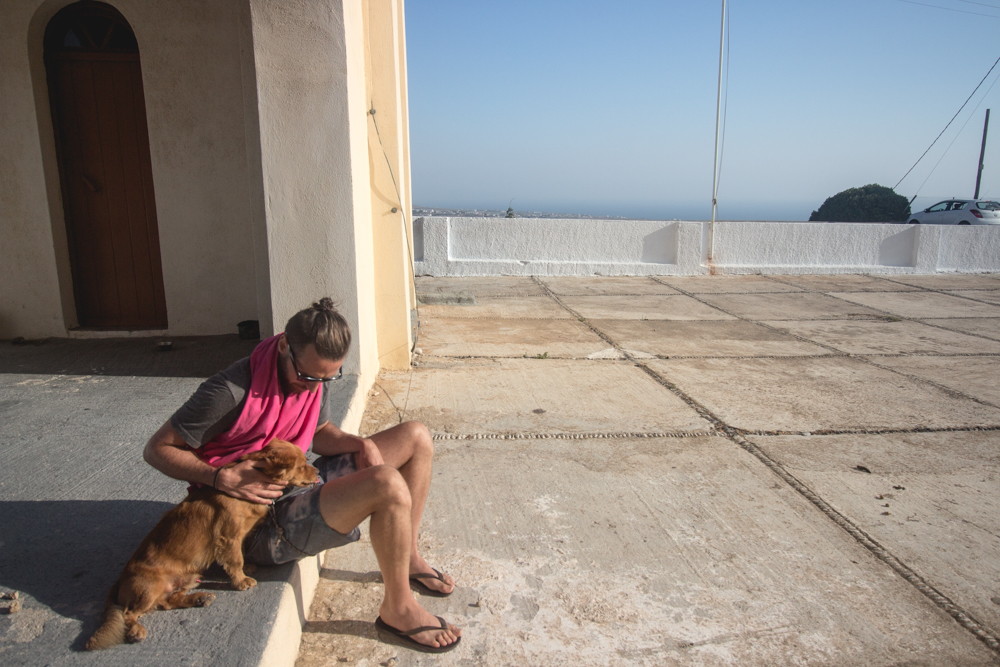

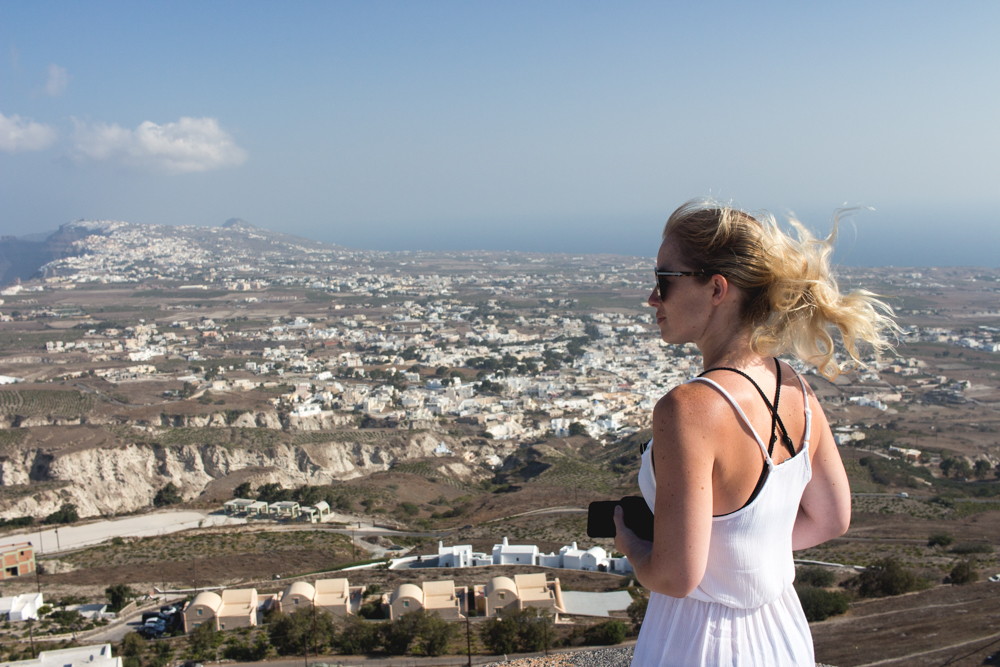



So where does all this leave us? Was Santorini the infamous city of Atlantis? Was there even such a thing as Atlantis to begin with? Most likely not. But then again the past is just a story we keep telling ourselves, one that changes, morphs and evolves every time we tell it or even think about it. So for me, I like to think that under the white cobble, the blue roofs and the legion of tourists, unbeknownst to everyone, there lie the remnants of a lost civilization. I think I'm OK with that.